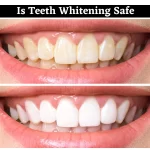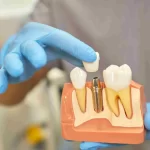Originally reported more than two centuries ago, dental corrosion still prevails as one of the major concerns for patients and dentists. 200 years back, studies showed how dental wear and tear occurred due to reasons, such as exposure to aerosols. Today, everyday foods and beverages like pickles, lemons, sodas, and starchy, sugary foods have been associated with tooth corrosion.
Now, people also need to be aware of yet another danger that contributes to severe and permanent tooth structure loss, known as the acid reflux-induced corrosion. This medical condition involves the contents of the stomach refluxing into the mouth, as per a study carried out by General Dentistry.
Acid reflux causes stomach acids to accumulate in the esophagus and sometimes in the mouth. Having acidic content in the mouth for long periods can erode the protective enamel and even encourage bacterial buildup. This can in turn cause cavities, tooth decay, and even periodontal disease. Other possible outcomes of acid reflux include heartburn, sinus infection, intense cough, difficulty in swallowing, bad breath, and hoarseness.
In case you experience any of the above-mentioned symptoms, contact your dentist without delay and ask for preventative measures, including medication. Other steps you can take to minimize the effects of acid reflux on your dental health include avoiding acidic foods, such as citrus fruits, fatty meals, spicy foods, fried foods, chocolates, alcohol, meat, caffeine, dairy, processed, and baked goods.
It is also important that you don’t brush your teeth for about an hour after a reflux episode. You should instead rinse your mouth after you have acidic content in your mouth. You can also eat sugar-free, antacid gums, which dissolve naturally after a while. However, avoid eating hard candy as it can exacerbate the damage caused by the acid reflux.
While acid reflux can be extremely harmful for your teeth, follow these tips to keep the damage to a minimum.

















